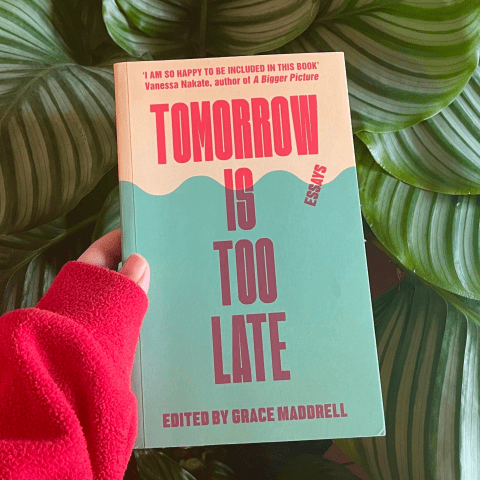A unique, highly readable approach to the environmental crisis, with alternating chapters outlining the effects on society if left unchecked, and the radical actions we can take to prevent it.
New edition includes updated sections on Covid-19 and COP26.
The environmental emergency is the greatest threat we face. Preventing it will require an unprecedented political and social response. And yet, there is still hope.
Academic, physicist, environmental expert and award-winning science communicator Paul Behrens presents a radical analysis of a civilisation on the brink of catastrophe. Setting out the pressing existential threats we face, he writes, in alternating chapters, of what the future could look like at its most pessimistic and hopeful.
In lucid and clear-sighted prose, Behrens argues that structural problems need structural solutions, and examines critical areas in which political will is required, including women’s education, food and energy security, biodiversity and economics.
Praise
‘If you are looking for a book that guides you through climate change, I found Paul Behrens’ The Best of Times, The Worst of Times really readable and passionate yet also nuanced.’
—Henry Mance, Chief Features Writer, Financial Times
‘Paul Behrens’ nod to Charles Dickens in his title is a fitting one, for Behrens writes with the verve of a novelist, and the story he tells—how our environmental future is entangled in issues of equality, employment, housing, food, energy, and much else—is a page-turner.’
‘An elegant, powerful and thought-provoking book.’
—James Shapiro, author of Shakespeare in a Divided America
‘The Best of Times, The Worst of Times is written in a style that brings all the data but is clear, concise, and at times poetic. Buy this book for your friends. Make them read it. It will change the way you think about the future and live your life in the present.’
—Stuart Vyse
‘Scientists have warned that tipping points could drive the Earth System past a fork in the road to two different futures. This book – beautifully written with a powerful format – vividly describes what these futures might look like, and how we might steer society towards a liveable future.’
—Will Steffen, Emeritus Professor at the Fenner School of Environment and Society, Australian National University
‘Paul’s book is truly amazing and I think everyone should read it. You’ll learn so much, I promise. It’s like a thought manual for the future. It’s just plain great.’
—Julia Steinberger, Professor of Ecological Economics at the University of Leeds
‘Behrens is the friend that gives it to you straight: unflinching on the bad stuff, but he won’t crush you with despair. This book is an excellent assessment of where we are and how we might proceed, as we navigate the uncharted terrain of the Anthropocene. Rich in complexity, deeply researched and, importantly, seeded with hope.’
—Gaia Vince, author of Adventures in the Anthropocene: A Journey to the Heart of the Planet We Made
‘This is an incredibly important book and I want the whole world to read it.’
—Dean Bakopoulos, author of Please Don’t Come Back from the Moon
‘An incredibly helpful book full of clear, well-researched analysis and information which many readers won’t be aware off. As someone with relatively little understanding of climate science I found it infinitely readable and underlined huge chunks for further consideration. The tone is urgent but measured and always undercut with the sort of hope which left me inclined towards action rather than despair. An absolutely essential read.’
—Jan Carson, author of The Fire Starters
‘A powerful, up-to-date, and sometimes terrifying primer on the stupendous global problems we face today.’
—David Christian, Professor of Russian and European History at Macquarie University and author of Origin Story: A Big History of Everything
‘Behrens provides a wealth of critically important facts, accessibly and insightfully related by presentations alternately slanted to pessimistic and optimistic attitudes.’
—Herman Daly, Emeritus Professor at the School of Public Policy, University of Maryland and author of Beyond Growth: The Economics of Sustainable Development
‘An extraordinary distillation of science, policy, and common sense without being tedious or dismal.’
—David Orr, Distinguished Professor of Environmental Studies and Politics at Oberlin College Emeritus and author of Dangerous Years: Climate Change, the Long Emergency, and the Way Forward



















